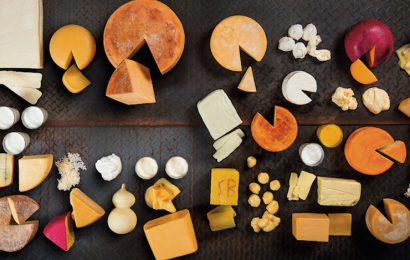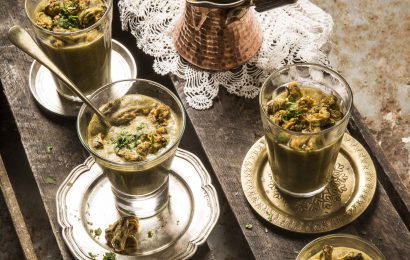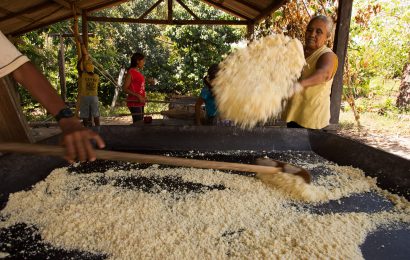“My memories of this time of the year are full of joy!” When I was a kid everything was beautiful: the decorations, the preparations, the food…I remember eating french toast, fruit cake, turkey and cod. I feel sad when someone says he or she hates Christmas. I have my own reasons to feel this way too, since I lost my father when I was 12 and my mother when I was 16. But for me this festive time of the year is a moment to celebrate the good moments we have with friends, family or even alone – I’ve been alone at this time of the year on some occasions but I’ve always decorated the table, cooked a small Christmas ham, some farofa and opened a sparkling wine. It’s not a date to be sad and cry, it has to be light.
Talking about family recipes, what is mandatory here is my mom’s fruit cake! I was a small kid, but I remember the taste of the fruits and the prune syrup with whisky and cognac…It was divine. I still have dreams about it. I believe the closest recipe we have to that one in Brazil is the traditional bride’s cake from Pernambuco, because it uses the same rich ingredients.
Another strong memory is about the ritual for cooking the turkey. In Bahia, where I was born, people start talking about how to get the turkey drunk days before the party. And I explain: it is a tradition to make the bird drink a litre of cachaça before killing it. It is said that this is a sacrifice to make its meat softer. On the day after that, the turkey is killed, plucked, and put into a marinade with garlic, onion and vinegar in which it is left overnight. Only after doing all these processes the bird is ready to go into the oven. Fun fact: almost nobody had an oven big enough to roast the turkey, so it was usually taken to roast in a neighbourhood bakery. This is such a Brazilian story! And the turkey has already been served with good farofa since that time. The idea of serving it accompanied by preserved fruits came by influence of recipes made in the United States that had arrived in Brazil probably during post-war times, after 1945. That’s when preserved candies had arrived in the country and caused a commotion because it was a new thing.
To serve turkey itself is a foreign tradition that we imported. At older times, what was usual here was to cook for Christmas whatever was available at home or in the neighbourhood: chicken, pork, duck, all of them roasted or served as a stew with vegetables (how about making your Christmas more Brazilian cooking a roast duck typical from the South region?). In the richest houses you could have found cod fish. We need to think about the geography and the reality of that time (and this still serves as a reflection today): if you lived in the hinterlands would you cook fish, turkey or what is available and more affordable there?
When I came to live in São Paulo, in my twenties, I saw that many European habits, mostly Portuguese, were very common in so many homes. It was hard for me to believe when I saw those golden slices of bread, which they called rabanada (the French toast), in the center of a Christmas table. I knew them as “fatias de parida” (postpartum slices), a Portuguese recipe that we use to eat on a daily basis, with milk. For me, this was a delicious surprise!
When I was already working at Revista Claudia, I discovered the typical cookies from this time of the year, the gingerbread, that was made with ginger and was another tradition adopted from foreing cultures. And I’d like to start a discussion here: why do something like that if we have such delicious local recipes of cookies and biscuits, like cream biscuits, nuts biscuits and arrowroot biscuits.
And to talk a little bit about New Year’s Eve: maybe is not of everyone’s knowledge, but turkey is a New Year’s Eve dish, according to the culture from Bahia. It is the main ingredient from “scalded turkey”, a recipe made with the bird carcass, cooked in a rich broth made with onion, garlic, pepper and whatever ingredients you find at home, that could be beef, pork or sausages, and vegetables such as manioc and kale. It is mandatory to eat this on the first day of the year after the procession of Nossa Senhora dos Navegantes. A delicious dish to celebrate a beautiful party.



